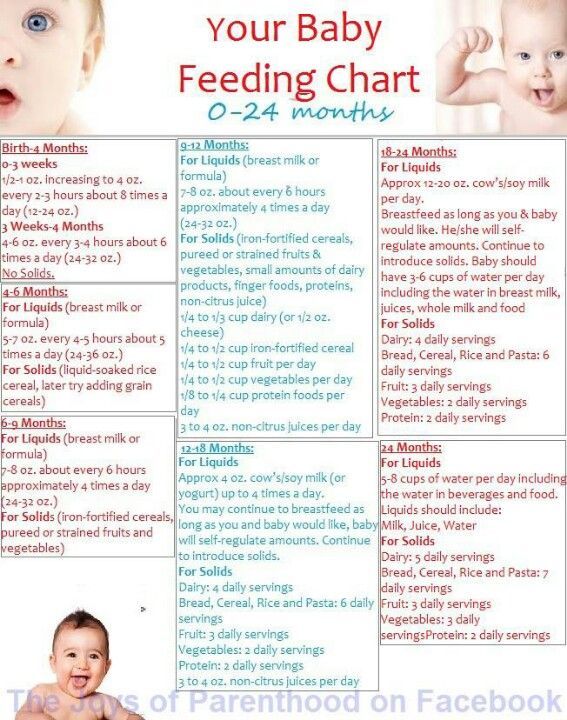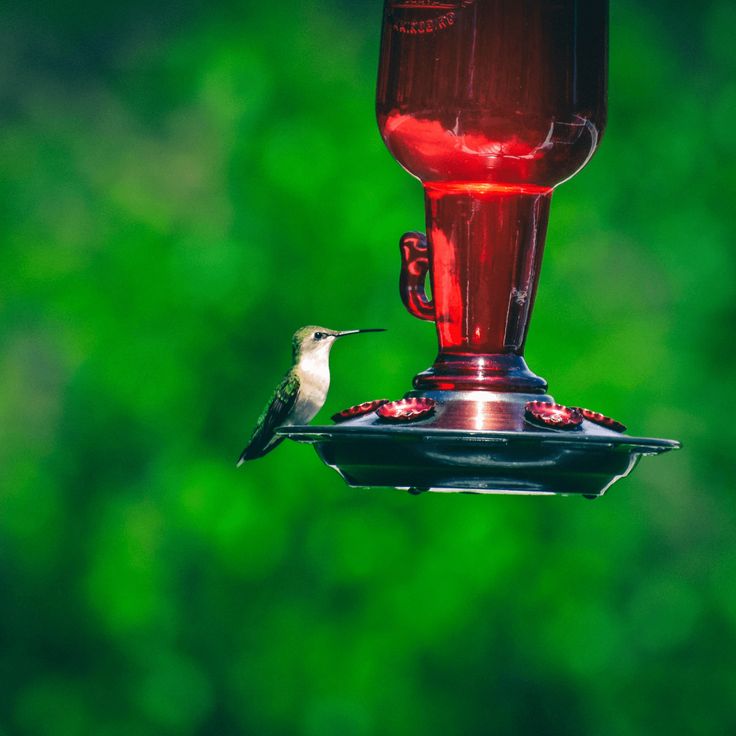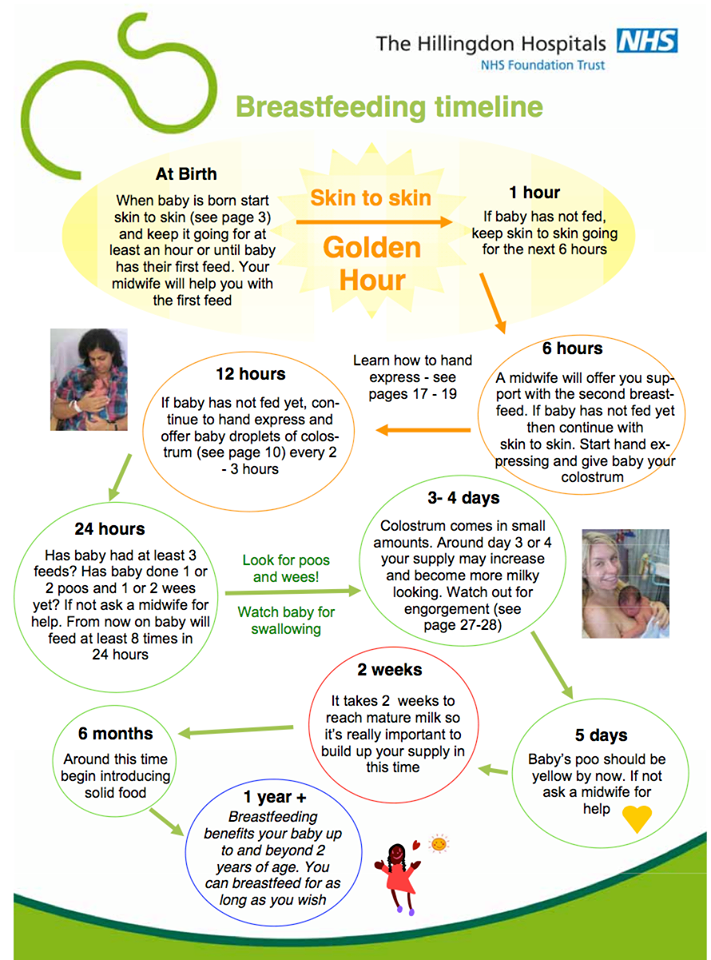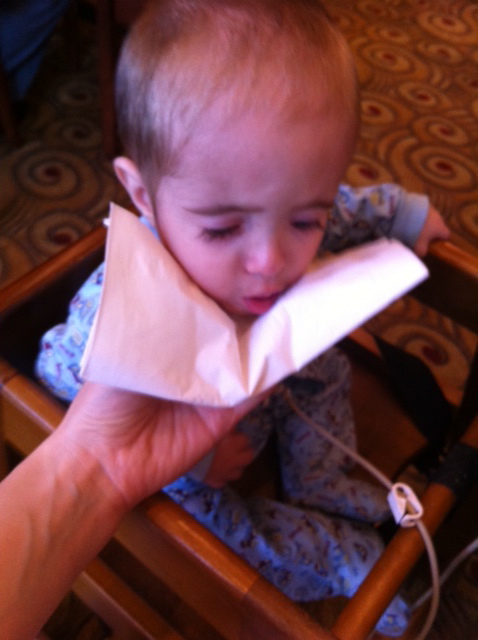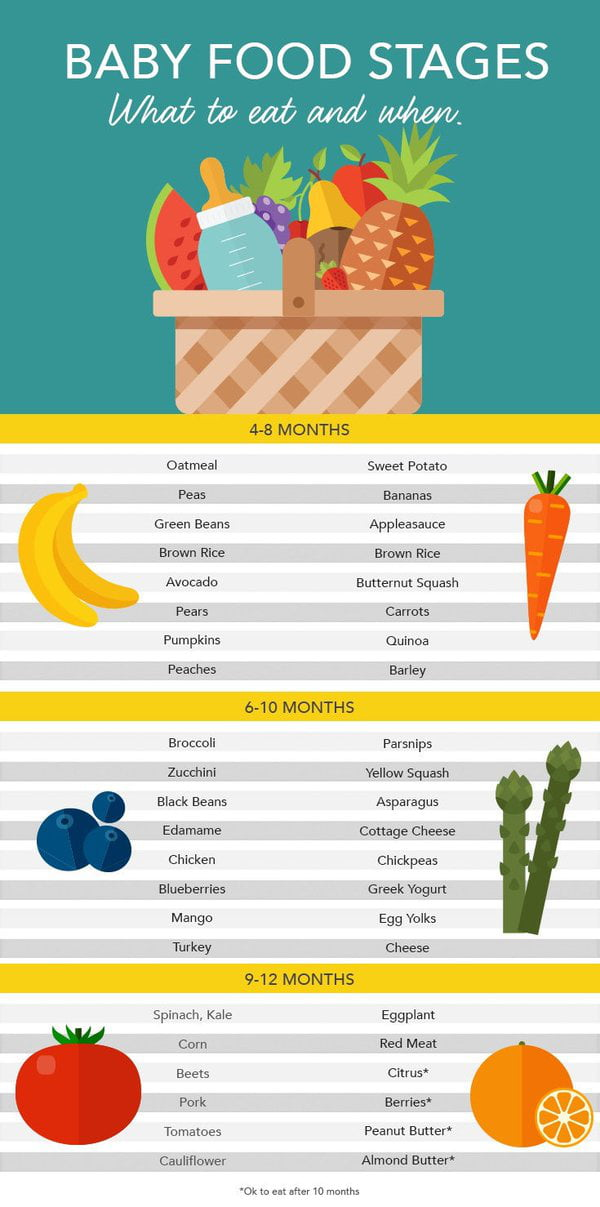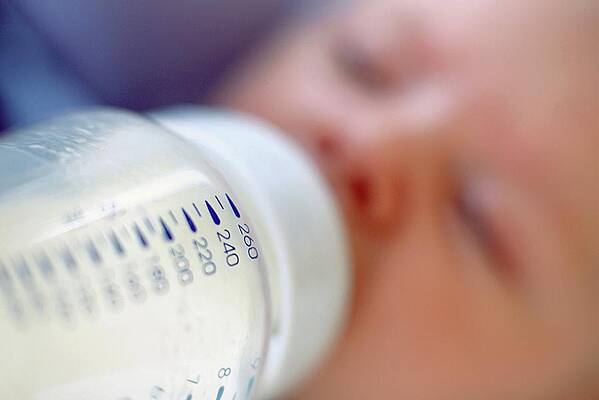Can you feed a newborn baby too much
How To Tell If You're Overfeeding Baby
We spend so much time fussing over whether baby is getting enough formula or breast milk—and for new parents it can be hard to tell what’s actually enough. Many parents may try to coax baby to finish their bottle or worry that baby isn’t eating enough, when really, baby has just had their fill. So can that well-intentioned fussing possibly lead to overfeeding baby?
Keep in mind that signs of a healthy baby may differ across cultures. “Different cultures have different feelings about how much a baby should eat, how often they should eat and what they should look like,” says Alanna Levine, MD, a pediatrician at Orangetown Pediatric Associates in Orangeburg, New York. Some parents consider a roly-poly baby a sign of a job well done, while other parents see a round baby and visualize an obese teen.
While cultural perceptions of a healthy baby may vary, when it comes to feeding, there are few things to keep in mind. Read on to learn how overfeeding baby can happen, signs to look for and what to do going forward.
In this article:
Can you overfeed a baby?
What leads to overfeeding?
Signs of overfeeding baby
How to avoid overfeeding baby
Can You Overfeed a Baby?
You can probably breathe a sigh of relief: Overfeeding baby is almost impossible, and most of the anxiety over babies’ food intake and appearance is pointless. “If baby is gaining weight and growing and your pediatrician isn’t concerned, you don’t need to worry,” Levine says. Different babies grow at different rates and eat different amounts at different times.
Babies come with an incredibly sophisticated self-regulation system: When they’re hungry, they eat, and when they’re full, they stop. (Sadly, we’ve lost this mechanism by the time we become parents.) So when babies turn away from the bottle or breast and refuse to even consider another nip, they’re telling you they’re full. When baby keeps coming back for more, that’s a sign they’re truly hungry (even if they just finished a full six ounces!).
Overfeeding breastfed babies vs. formula-fed babies
Pediatricians Dina DiMaggio, MD, and Anthony F. Porto, MD, MPH, authors of The Pediatrician’s Guide to Feeding Babies and Toddlers, echo the importance of listening to your child’s cue, regardless of whether they’re breastfed or formula-fed. “We are often asked, ‘how come my child didn’t finish their bottle of formula?’ but are rarely asked that when children are breastfed.” (Probably because it’s a lot easier to see—and obsess over—how much milk went into a bottle.)
On average, a full-term newborn drinks 2 ounces of formula per bottle every three to four hours, or breastfeeds on demand (about eight to 12 times a day), according to DiMaggio and Porto. At one month old, baby will likely drink 3 to 4 ounces of formula per bottle every three to four hours, while a breastfeeding baby may feed approximately seven or eight times a day. This pattern of baby drinking more ounces of formula or breastfeeding fewer times a day lasts until they are eight to 12 months old, at which point baby may drink seven to eight ounces of formula per bottle or breastfeed three to four times a day.
While these figures will vary with each child, it’s important to remember it’s perfectly normal for baby not to finish their bottle, as long as they’re hydrated and eating enough throughout the day. “Infants have a better understanding of when they’re full and, unlike most adults, don’t just eat whatever serving size is put in front of them,” DiMaggio and Porto say.
What Leads to Overfeeding?
Overfeeding baby is very rare, but it can happen. It’s more common in bottle-fed babies, simply because it’s easier for parents to see how much food their child is consuming. It also takes less effort to drink from a bottle, so babies (who love to suck) may inadvertently get too much milk while feeding.
If you’re concerned about possibly overfeeding baby, talk to your pediatrician. The doctor will look at baby’s length, weight and development, but as long as baby is thriving, they’re probably eating just fine.
Signs of Overfeeding Baby
The good news is, since you’ll likely be visiting a pediatrician often in first few months, you can track baby’s weight gain and feeding patterns. But don’t rely on weight as an indicator of whether you’re overfeeding baby. Instead, spitting up could be a sign you’ve pushed baby to take in extra food—for example, if baby spits up after draining a bottle you kept offering after they turned away. But more often than not, spitting up is a typical infant reaction or reflux.
But don’t rely on weight as an indicator of whether you’re overfeeding baby. Instead, spitting up could be a sign you’ve pushed baby to take in extra food—for example, if baby spits up after draining a bottle you kept offering after they turned away. But more often than not, spitting up is a typical infant reaction or reflux.
If you’re worried baby is eating too much for their age or has symptoms of vomiting, your pediatrician might recommend limiting how many ounces baby is drinking or how many times they feed, DiMaggio and Porto say. In most cases, however, as long as baby is healthy and doing well, feeding changes aren’t necessary.
How to Avoid Overfeeding Baby
If you learn you’ve been overfeeding baby, make a point of respecting your child’s feeding cues going forward. “If baby turns away before the bottle is finished or before your usual nursing time is up, accept the fact that they may not be hungry now,” Levine says. Don’t focus on the numbers: It doesn’t matter how many ounces baby finishes at each feeding. What matters is that baby is healthy and happy overall.
What matters is that baby is healthy and happy overall.
Updated February 2020
Expert bios:
Alanna Levine, MD, is a pediatrician at Orangetown Pediatric Associates in Orangeburg, New York, and works on staff at Englewood Hospital and Medical Center in New Jersey. In addition, she serves as a spokesperson for the American Academy of Pediatrics.
Dina DiMaggio, MD, and Anthony F. Porto, MD, MPH, are co-authors of The Pediatrician’s Guide to Feeding Babies and Toddlers: Practical Answers to Your Questions on Nutrition, Starting Solids, Allergies, Picky Eating and More, as well as spokespeople for the American Academy of Pediatrics. DiMaggio is a clinical assistant professor in the department of pediatrics at NYU Langone in New York City, and Porto is a pediatric gastroenterologist at Yale New Haven Health and medical director of the Yale Pediatric Celiac Program in New Haven, Connecticut.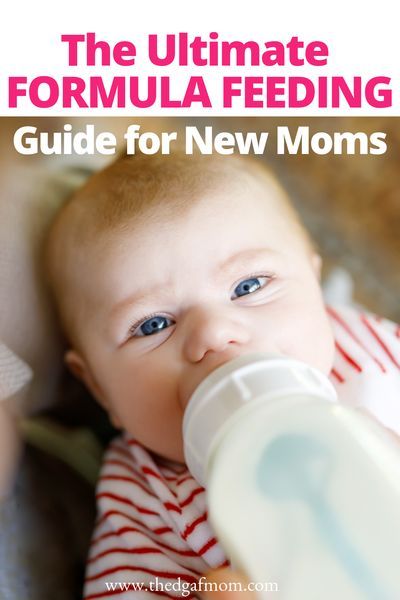
Please note: The Bump and the materials and information it contains are not intended to, and do not constitute, medical or other health advice or diagnosis and should not be used as such. You should always consult with a qualified physician or health professional about your specific circumstances. Plus, more from The Bump:
Your Ultimate Guide to How to Bottle-Feed a Baby
Breastfeeding 101: How to Breastfeed Baby
What You Need to Know About Baby Growth Spurts
Can a Newborn Eat Too Much? How to Not Overfeed Your Baby
Signs of newborn overeating and ways to give the proper nutrition
By NewFolks
Can you overfeed a newborn? In short, yes, you can, but it doesn’t happen often. Every newborn has differences in appetite where one might drink a bottle or breastfeed longer than the other. Regardless, you can recognize the signs when your child has overeaten. Overfeeding a newborn often causes discomfort to the child because they can’t properly digest all breast milk or formula.
Regardless, you can recognize the signs when your child has overeaten. Overfeeding a newborn often causes discomfort to the child because they can’t properly digest all breast milk or formula.
Contents
- Signs of overfeeding baby on a regular basis
- What causes a newborn to eat too much?
- How to deal with overeating in a newborn
When overeating, the child can also ingest air, which may produce gas, increase abdominal discomfort, or cause crying. A child can even spit more than usual and have a soft stool. Although the discomfort of crying is not colic, they can cry more frequently than a child who already has colic. Therefore, you’ll need to watch for the signs of overfeeding your baby.
These are the signals that will clue you into how hungry (or not) your baby is.
- Holding the breast or bottle and continuously sucking (which indicates hunger)
- Taking longer breaks between sucking (meaning that he or she is full)
- Moving away from the breast or bottle (signaling fullness)
The amount of food each newborn needs will vary, but there are signs that generally show that a baby is gaining enough nutrition, such as a happy demeanor and good muscle tone.
Overeating, however, means that the baby consumes more milk (breast milk or formula) than they need for growth. Getting too much milk can overload a child’s small stomach and consequently get in the way of proper digestion.
Signs of overfeeding baby on a regular basis
Likewise, here are the signs of overfeeding a newborn that you’ll need to be aware of.
- Above-average weight gain
- Frequent, nauseating bowel movements
- Large burping
- Milk regurgitation
- Irritability
- Sleep disturbance
Symptoms associated with overeating are usually mistaken for colic, reflux, allergies, or intolerances to milk protein, or lactose intolerances. What separates the overeating from these conditions is that your child shows healthy growth, which does not happen when he or she has a digestive issue or a food allergy.
What causes a newborn to eat too much?
There are plenty of reasons a newborn overeats which include:
- Sleep deprivation: Lack of sleep disrupts the hormonal balance, which regulates appetite, resulting in increased appetite.

- Development: Babies are at the stage of oral development. In addition to wanting to suck when they are hungry, they also like to suck when they are tired, bored, uncomfortable, frustrated, or simply because they want to.
- Active sucking reflex: Babies have a limited ability to stop when they’ve had enough milk due to the sucking reflex, especially when feeding quickly.
- Fast feeding: This increases the likelihood that a child will ingest more milk than the stomach can contain or more than their tiny digestive system can adequately digest.
- Association of feeding and sleep: A child who falls asleep regularly by sucking a bottle can learn that the way they fall asleep is with a bottle in their mouth. This means that a child may want a bottle not only when they are hungry, but also when they are tired.
- Ignoring the signs of satiety: Satiety means that the child is full. The caregiver may try to force the child to consume the amount in the bottle after the child has shown signs of being full.
 Forced feeding of the baby is easy to implement while the baby’s sucking reflex is active (from birth to 3-4 months), and therefore it is easy to force the baby to take more than necessary.
Forced feeding of the baby is easy to implement while the baby’s sucking reflex is active (from birth to 3-4 months), and therefore it is easy to force the baby to take more than necessary.
How to deal with overeating in a newborn
For starters, it is important not to limit the baby’s milk intake, but to help them to self-regulate. If you happen to overload the baby, don’t stress too much. In the future, you would need to watch for signs of being full. If he or she moves away before the end of the bottle or before the usual time of breastfeeding ends, then your baby is saying that the feeding was enough. If you are concerned about your child overeating, talk to your pediatrician. The doctor will examine the length, weight, and development of the baby and make some recommendations.
Overfeeding a newborn is very rare, but it can happen. It is more common in children who breastfeed, simply because parents can’t exactly determine the quantity that the baby has taken in.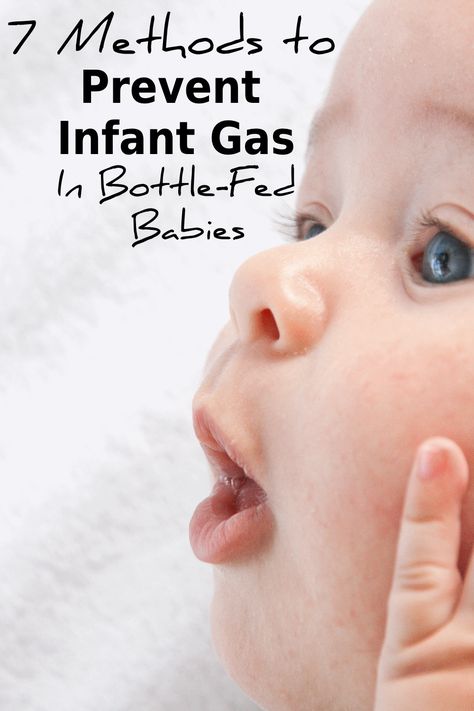 However, don’t focus on the amount because the quantity varies with each feeding. After all, you’ll be able to tell if your child is healthy and happy.
However, don’t focus on the amount because the quantity varies with each feeding. After all, you’ll be able to tell if your child is healthy and happy.
Editors' Recommendations
- Should I wake baby from a long nap? 3 times it’s okay
- 5 ways to detect ovulation at home naturally
- Can you take cold medicine while nursing? What you need to know about what to avoid
- 6 best Facebook groups for nursing moms
- 5 reasons reversible strollers are an excellent purchase for new parents who are on the go
Too much milk? Reduced lactation
Sometimes you may feel like you are producing too much milk, especially in the first weeks of breastfeeding. After reading our article, you will find out if you really have too much milk, and what can be done to reduce it.
Share this information
Breast milk is very healthy, so it's good to have a lot of it, right? However, this is not always the case. Babies can sometimes have a hard time coping with the rapid rush of milk that usually accompanies excess lactation. And mothers who have too much milk often experience discomfort due to the constant leakage of milk and often suffer from mastitis.
Babies can sometimes have a hard time coping with the rapid rush of milk that usually accompanies excess lactation. And mothers who have too much milk often experience discomfort due to the constant leakage of milk and often suffer from mastitis.
Fortunately, there are a number of ways to help in this situation. But before you use them, answer two important questions:
Do I really have too much milk?
Some of the symptoms of over-lactation (listed below) may occur for very different reasons. You should not try to reduce the production of breast milk, if you are not sure that it is the overabundance of it that is the main problem. Otherwise, this can lead to the fact that your baby will produce less milk than your baby needs, especially in the critical first month when production is just being established.
Is being overweight a problem for me or my baby?
If you are sure that you have an excess of milk, but this does not cause problems for you and your baby, you do not need to do anything.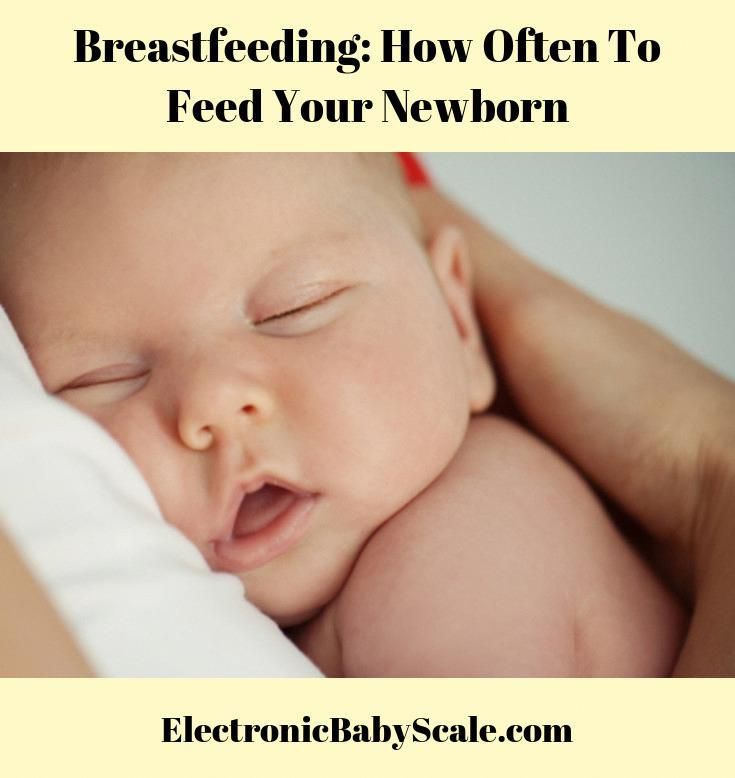 In most cases, everything returns to normal within the first few months. As the baby grows, he will learn to better cope with the rapid flow of milk and will feed with pleasure.
In most cases, everything returns to normal within the first few months. As the baby grows, he will learn to better cope with the rapid flow of milk and will feed with pleasure.
Leakage is not always a sign of too much milk
During the first four to six weeks of your baby's birth, the level of prolactin, the hormone responsible for milk production, will rise each time the breast is emptied. In these first weeks, the breast learns to produce milk in the amount that the baby needs, depending on the time of day. Therefore, excessive leakage, rapid filling of the breast, and even splashing of milk during a rush are the norm. 1
At the same time, your baby is learning to suck and swallow milk, so you shouldn't be surprised if he suddenly coughs or chokes when he suckles.
After about four to six weeks, the spikes in prolactin levels will begin to fade and milk production will become more balanced, adjusting to your baby's needs on a supply and demand basis.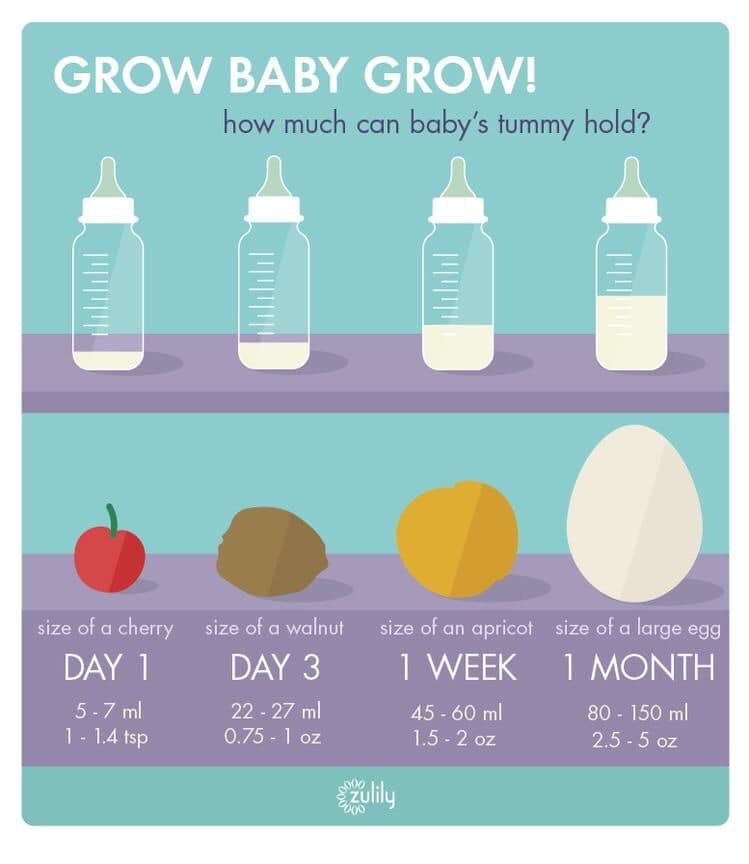 2 However, given the many hormonal changes that occur in the body of a young mother, such a restructuring may take some time. In some mothers, milk production is established quickly, in others a little longer.
2 However, given the many hormonal changes that occur in the body of a young mother, such a restructuring may take some time. In some mothers, milk production is established quickly, in others a little longer.
Behavior of the child, which may indicate an excess of milk
When overproduced, milk is usually released very quickly, especially during the first flush. As a result, the baby may cough or choke at the beginning of a feed, push back, or hold the breast loose in the mouth. The baby may pull away from the chest, frightened by a quick rush, and then cry because he hasn’t eaten. He can swallow milk in large volumes and with a lot of air, and after that he will spit up a lot. Try to be as careful as possible when you help him burp - sudden movements combined with a full tummy can cause the baby to vomit and scare him even more.
At the start of a feed, milk is relatively low in fat and consists mainly of lactose (sugar) and proteins. As the breast is fed and emptied, the fat content constantly increases. In the case of excess milk production, your baby may feel full before he completely empties his breast. This means that he will get a lot of lactose-rich milk, but not enough fat-rich milk that comes towards the end of a feed. Excess lactose instead of a balanced diet can make digestion difficult and cause hard, frothy, and greenish stools.
In the case of excess milk production, your baby may feel full before he completely empties his breast. This means that he will get a lot of lactose-rich milk, but not enough fat-rich milk that comes towards the end of a feed. Excess lactose instead of a balanced diet can make digestion difficult and cause hard, frothy, and greenish stools.
Oddly enough, in such a situation, the baby may constantly want to eat and behave restlessly between feedings. Despite the high calorie content, the low fat content of milk prevents it from being fully satiated. It is the fat contained in food that gives us a feeling of satiety. What happens if you eat a few dozen rice crackers or a slice of cheese with a cookie instead? You will fill up on cheese faster, as it is more saturated with fats.
However, all these symptoms can be caused by completely different problems, such as reflux, allergies, or even vice versa, insufficient milk production. An excess of breast milk can indeed cause these symptoms, but only if they are accompanied by excessive weight gain. Children usually dial around 900 g per month, but in the case of an excess of milk, they can gain much more, often almost twice as much. 1 If you feel like you are having too much milk but your baby is gaining weight normally, contact your lactation consultant or your healthcare provider.
Children usually dial around 900 g per month, but in the case of an excess of milk, they can gain much more, often almost twice as much. 1 If you feel like you are having too much milk but your baby is gaining weight normally, contact your lactation consultant or your healthcare provider.
Symptoms that may indicate an excess of milk in mothers
Mothers with an excess of breast milk often experience swelling and tightness in the breast, which constantly seems full. 3 As already noted, the leakage of breast milk in the first six weeks does not indicate its excess. However, if this continues at every feeding and after this period, it may be that the problem is in the overabundance.
A baby cannot always empty a full breast, so when there is an excess of breast milk, blockage of the milk ducts or periodic bouts of mastitis often occur. However, these problems can also be caused by other reasons.
How to reduce milk production
If you have found that you have too much breastmilk and this is causing you concern, here are a few simple things that can help. For some mothers, they are enough.
For some mothers, they are enough.
- Try feeding in a relaxed position. Reclining or lying down feeding will allow the baby to better control the process. In this position, the baby sets the rhythm of feeding himself and can always raise his head to take a break if the milk is released too quickly. Don't forget to put a towel over to soak up spilled milk.
- Release pressure. If full breasts make you uncomfortable, try expressing some milk by hand or with a breast pump, but try to express as little milk as possible. Every time you empty your breast, you send a signal to her to produce even more milk. Therefore, pumping provides short-term relief, but with prolonged use, it can only aggravate the situation. If you need to express and store milk to feed your baby when you are not around, it is best to address the problem of excess production first.
- Try bra pads. If you have milk leaks, put special pads or pads in your bra to collect milk* to keep your underwear dry.
 If your milk leakage is moderate and already decreasing, or your breasts leak slightly during pregnancy, ultra-thin disposable pads will help you feel confident in any life situation.
If your milk leakage is moderate and already decreasing, or your breasts leak slightly during pregnancy, ultra-thin disposable pads will help you feel confident in any life situation. - Avoid teas and lactation supplements. If you have been drinking teas, eating special biscuits, or taking supplements to improve breast milk production, this should be stopped now to resolve the problem.
"Breast Watch" to reduce milk production
If all the above methods fail, you can try a technique called "Breast Watch", which allows you to better control milk production. However, before trying this method, check with a lactation consultant or healthcare provider.
On breastfeeding, you feed your baby on demand, but only on one breast for four hours. The second breast during this time is strongly filled. Since breast milk contains what is known as a "feedback lactation inhibitor", due to overfullness, the body sends a signal to that breast to slow down milk production.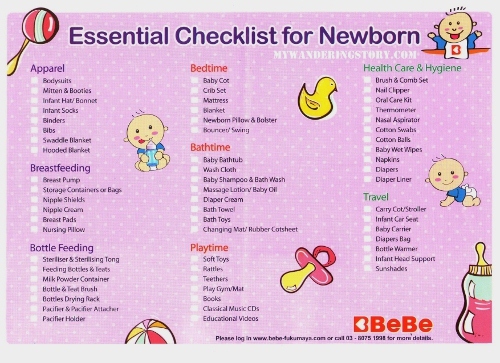 This is a natural way to protect the breast from endless filling.
This is a natural way to protect the breast from endless filling.
This technique must be applied for 24 hours, changing breasts every four hours. If the milk does not become less, try increasing the duration of the "watch" to six hours.
Complete emptying and “breast duty” technique
If after another day there is still a lot of milk produced,
you can try another version of this technique, which is recommended in cases of extreme overabundance. It is called "complete emptying and duty of the breast." 3
In this method, both breasts must be completely emptied in the morning with an electric breast pump and breastfeeding should be started immediately. The flow of milk will be weaker and allow the baby to eat calmly. In addition, he will get more fat-rich milk, which comes at the end of feeding, which means he will feel more full.
After that, you can continue the "breast watch" for four hours, as described above. If that doesn't help, try increasing the interval to six, eight, or twelve hours the next day, depending on the extent of the problem. Before using this technique, be sure to consult with your doctor.
Before using this technique, be sure to consult with your doctor.
You may not need to completely empty your breasts after the first use of this technique, but some mothers have to do this once or twice. Improvement usually occurs within the first two days or a little later, but in no case should "breast watch" be used for more than five days.
Literature
1 Morbacher N. Breastfeeding answers made simple. Amarillo TX , USA : Hale Publishing ; 2010. - Morbacher N., "Simple answers to questions about breastfeeding." Amarillo, Texas, USA: Publishing Hale 0106 et al . Blood and milk prolactin and the rate of milk synthesis in women. Exp Physiol. 1996;81(6):1007-1020. - Cox D.B. et al., Effects of blood and milk prolactin on milk production in women. Exp Physiol.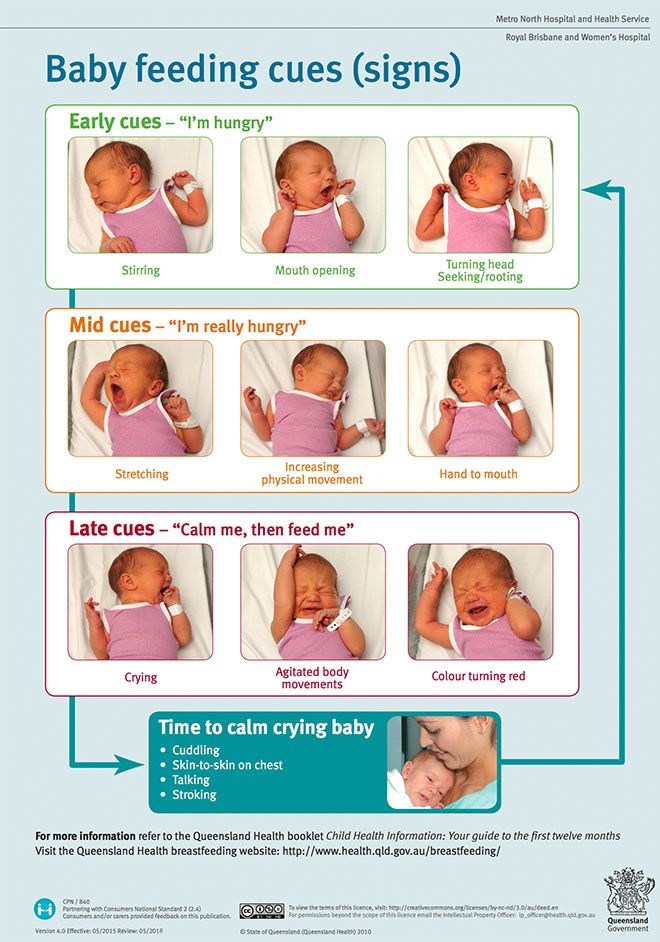 1996;81(6):1007-1020.
1996;81(6):1007-1020.
3 van Veldhuizen-Staas CG. Overabundant milk supply: an alternative way to intervene by full drainage and block feeding. Int Breastfeed J . 2007;2(1):11. - van Velhusen-Staas SJ, "Milk Overabundance: An Alternative Countermeasure by Total Drying and Blocking of Feeds." Int Brestfeed J (International Journal of Breastfeeding). 2007;2(1):11.
Read instructions before use. Consult a specialist about possible contraindications.
* RC № FZZ 2010/07352 dated 19.07.2010
Breastfeeding after 1 month: what to expect
Do you know when breast milk production stabilizes? And how does the frequency and duration of feedings change as the baby grows? You will find answers to these questions in our recommendations for breastfeeding after the first month.
Share this information
Congratulations: You made it through the first month of breastfeeding. Your breast milk has reached full maturity 1 , its production stabilizes and it leaks almost or not at all from the chest. Don't worry, it's not getting less milk, it's just that your breasts are better able to produce and store it now. 2 At the age of six weeks, your baby will begin to please you with his charming toothless smiles, and by two months you will have 500-600 feedings behind you. With a favorable development of events, problems with latch on by this point will already be resolved, and you can simply enjoy the convenience and benefits of breastfeeding.
Your breast milk has reached full maturity 1 , its production stabilizes and it leaks almost or not at all from the chest. Don't worry, it's not getting less milk, it's just that your breasts are better able to produce and store it now. 2 At the age of six weeks, your baby will begin to please you with his charming toothless smiles, and by two months you will have 500-600 feedings behind you. With a favorable development of events, problems with latch on by this point will already be resolved, and you can simply enjoy the convenience and benefits of breastfeeding.
When does breastfeeding decrease?
"Normal" feeding frequency for babies aged one to six months varies considerably, with some needing four times a day, others needing to breastfeed 13 times a day. 3
“From the age of one month, the amount of milk a baby consumes per feed increases so that he can go without food for longer,” explains Cathy Garbin, a recognized international expert on breastfeeding, “A baby’s stomach grows, so he eat more at one time. In addition, mature milk allows him to stay full longer.”
In addition, mature milk allows him to stay full longer.”
Feeding can last from 12 minutes to one hour -
the habits of babies vary so much! 3 But if the child is gaining weight and falls within this range, there is no cause for concern.
What is most surprising, no matter how often the baby eats, he consumes approximately the same amount of milk per day - both at one month and at six, when it is time to start complementary foods with solid food. 4
“However, sometimes the baby eats more and sometimes less, especially when he is unwell. It’s better to just listen to his needs,” Katie explains.
Is breast milk sufficient for the first six months?
Yes. Breast milk contains everything a baby needs for the first 90,091 six months of life—exclusively breastfed babies don't even need to drink more water! 5 Until about six months of age, a child's digestive system is simply not adapted to the digestion of solid food, and he will be able to drink cow's milk only after a year.
In addition, breastfeeding during this period prepares the child for further development. It strengthens the muscles of the mouth, develops the jaw and helps straighten the teeth 6.7 . All this will come in handy when the baby begins to eat and talk. And because what you eat and drink affects how your breast milk tastes, your baby discovers new tastes even before he starts eating solid foods. 8
In addition, when your baby is sick, your body produces breast milk that is
rich in antibodies that help fight infection. 9 In other words, milk continues to protect the baby for many months as it grows and becomes more active.
Breastfeeding is also very comfortable once you get used to it. Claudia, a mother of two from the UK, notes: “No need to sterilize a mountain of bottles, prepare formula, carry it all with you, warm it up - in general, breastfeeding turned out to be very convenient, especially when my babies grew up and we began to leave the house more often. ".
".
At what age does a breastfed baby start sleeping through the night?
Waking up at night is normal for babies. Most babies between the ages of one and six months consume a fifth of their daily milk requirement at night, so nighttime feedings should not be neglected if you want your baby to get the required amount of calories. 3
"It really depends on what you mean by 'sleep through the night,'" says Cathy. "And it's better than waking up every two hours anyway! I have met infants who, starting at six weeks old, fell asleep at 19:00 and woke up at 7:00, but most continue to wake up frequently at night after this age. All children are different."
In Wales, a study of more than 700 infants showed that almost 80% of children aged 6 to 12 months wake up at least once a night, and 25% of them wake up three times or more. And it did not depend on what type of feeding the child is on - breastfeeding or artificial. 10
And if nighttime awakenings are unavoidable anyway, breastfeeding is at least comfortable! Maina, a mother of two from Australia, agrees: “You can even take a nap while feeding in the middle of the night - both the body and the baby do their job on autopilot. No need to plan, measure, sterilize anything - ready-made food at the right temperature is right in your chest. I think it's ideal."
No need to plan, measure, sterilize anything - ready-made food at the right temperature is right in your chest. I think it's ideal."
My child wakes up more often. Perhaps he is hungry?
At about four months of age, a baby's sleep pattern changes as he, like an adult, has phases of deep and light sleep. Because of this, he may wake up more often at night. “At four months, sleep is more of a problem than feeding,” Cathy admits. “It can be exhausting, but try to adapt and be patient.”
Some call this " a four-month sleep regression ", but "progress" is more appropriate here. From the outside it may look like a step back, but in fact the child is approaching an important stage of development. He learns quickly, begins to become aware of the world around him, his perception is sharpened and, perhaps, there is anxiety about being separated from his mother. Crying when waking up and being able to eat milk cuddled up to mommy’s chest is a way for a baby to calm down. 11–13
11–13
Resist the urge to “supplement” your baby with formula or start solid foods early
in an attempt to improve his sleep. Breast milk contains
hormones that make you sleepy and help you both relax
. Research shows that breastfeeding mothers actually sleep longer at night than mothers of formula-fed or mixed-fed babies
. 14
How does teething affect breastfeeding?
Teething usually begins around four months of age. When a baby has gum pain, he becomes restless, throws his chest and cries. All this, of course, is unpleasant.
However, breastfeeding can be an excellent sedative.
Studies have shown that babies who are breastfed
during the vaccination period cry less and forget pain more quickly. 15 Breastfeeding during teething can have the same calming effect.
An unpleasant side effect may be the child's attempts to try out his new teeth on the mother's breast. “Sometimes children flirt and bite their mother’s nipples. This can be felt in advance by how the behavior of the child changes when feeding: before biting, he removes his tongue, explains Cathy, “Usually this is not a problem and only happens a couple of times. It is enough to stop feeding, affectionately say that biting is not good, and the baby will soon leave this fun.
This can be felt in advance by how the behavior of the child changes when feeding: before biting, he removes his tongue, explains Cathy, “Usually this is not a problem and only happens a couple of times. It is enough to stop feeding, affectionately say that biting is not good, and the baby will soon leave this fun.
How to continue feeding if you have to be separated from the baby?
It happens that during the first six months, when the baby is still fully breastfed, the mother needs to be away for several hours - or even longer if she has to go to work or go away on business for a couple of days.
But this does not mean that you should stop breastfeeding. You can still feed your baby healthy breast milk - just express it and have someone give it to your baby when you're away. Here's Katie's advice:
“Start expressing milk a couple of days in advance, in small batches, 40-60 ml at a time. So you will have the necessary supply for the time of your absence, but at the same time the amount of milk produced will remain the same.
If you have to return to work, check with your employer about your daily schedule. Many mothers breastfeed their babies in the morning, evening and night, and pump milk at lunchtime to relieve discomfort and create a reserve for the next day.
This usually turns out to be much easier than one might think, and today many companies are well placed to do this, notes Cathy. “Breast pumps make it easy to solve this problem.”
Natalie, mother from the USA, shares her experience: “I feed Dylan as soon as he wakes up, and sometimes again before leaving for work, in order to maintain milk production and not lose contact with the child. At work, I pump twice the next day (in my absence, he eats two bottles of breast milk), and after work I rush home for the evening feed. I don't pump on the weekends - we resume regular breastfeeding."
Is it possible to continue breastfeeding after the introduction of solid foods?
When your baby begins to show interest in food and can sit up on his own - usually around six months of age - it's time to start solid foods. However, it is not necessary to stop breastfeeding, Cathy explains: “A baby’s iron stores during pregnancy are depleted by six months, so he needs additional sources of this element.
However, it is not necessary to stop breastfeeding, Cathy explains: “A baby’s iron stores during pregnancy are depleted by six months, so he needs additional sources of this element.
Start complementary foods with solid foods, but remember that breast milk remains a more important source of calories and nutrients until the baby is eight to nine months old. By this time, he will be eating much more solid food, but he will still need to breastfeed four to five times a day. By 12 months, the frequency of feeding may be two to six times a day. All babies are different, and many of them at this age are still getting half their daily calorie intake from breast milk.”
Don't forget that breast milk can be added to solid foods, such as cereals and purees, so that the baby can taste the familiar taste. If possible, use milk expressed just before feeding (not thawed) and add just before serving to keep bacteria and nutrients alive. 16
You may be pressured by others to stop breastfeeding when your baby is six months old, but the longer you breastfeed or pump, the better for you and your baby.
How long can I continue breastfeeding?
“The World Health Organization recommends breastfeeding along with solid foods until at least two years of age because it plays an important role in supporting immunity,” says Cathy. feels bad".
At eight months, the baby sometimes breastfeeds four times a day, but by one year old, the frequency of feedings can be reduced to two times a day. You yourself will understand which feeding regimen is more suitable for you and your baby. For example, Jane, a mother of two from the US, breastfed until the age of two: “I breastfed when I was at home - in the evenings and on weekends, when the children wanted to be close to me,” says Jane, “It helped a lot when they were sick . Breastfeeding has become my favorite form of comfort."
“When my son got a little older and bolder, he still often asked me to breastfeed him - as if to calm down and gain strength,” recalls Amy, a mother of two children from Canada, “When he happened to hit or skin his knee , breastfeeding was a wonderful way to comfort him.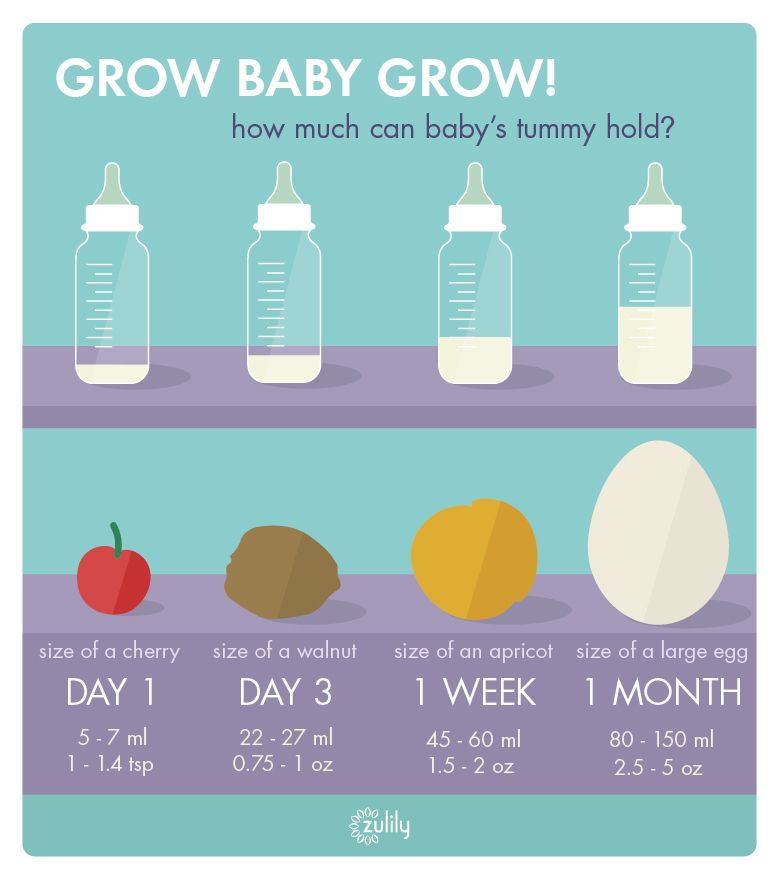 ”
”
If your baby is over a year old and you are still breastfeeding, people around you will probably tell you that this way he will never wean. But if children are not pressured, they usually refuse to breastfeed themselves between the ages of two and four. 17
“I didn’t intend to breastfeed for so long, but as a result, I still breastfeed my four-year-old daughter and 22-month-old son,” says Suzanne, mother of two from the UK, “I breastfeed my youngest before and after work, and in I express milk on business trips. The eldest daughter likes to breastfeed a little before bed or when she is upset - this is a great way to make contact. When I get tired of it, I remind myself what great benefit and comfort it brings them. I now plan to pursue a baby-initiated end breastfeeding strategy — let them decide when to stop.”
For more information on what to expect and lots of tips and tricks, see our guide Breastfeeding Problems After the First Month.
Literature
1 Ballard O, Morrow AL. Human milk composition: nutrients and bioactive factors. Pediatr Clin North Am . 2013;60(1):49-74. - Ballard O., Morrow A.L., "Composition of breast milk: nutrients and biologically active factors." Pediatrician Clean North Am. 2013;60(1):49-74.
Human milk composition: nutrients and bioactive factors. Pediatr Clin North Am . 2013;60(1):49-74. - Ballard O., Morrow A.L., "Composition of breast milk: nutrients and biologically active factors." Pediatrician Clean North Am. 2013;60(1):49-74.
2 Kent JC et al. Principles for maintaining or increasing breast milk production. J 2012;41(1):114-21. - Kent J.S. et al., "Principles for Maintaining and Increasing Milk Production". J Obstet Ginecol and Neonatal Nurse. 2012;41(1):114-121.
3 Kent JC Volume and frequency of breastfeedings and fat content of breast milk throughout the day. Pediatrics. 2006;117(3): e 387-395. - Kent J.S. et al., "Amount and frequency of breastfeeding and fat content of breast milk during the day." Pediatrix (Pediatrics). 2006;117(3):e387-95.
2006;117(3):e387-95.
4 Kent JC et al. Longitudinal changes in breastfeeding patterns from 1 to 6 months of lactation. Breast Med . 2013;8(4):401-407. - Kent J.S. et al., Longitudinal changes in breastfeeding patterns between 1 and 6 months of lactation. Brest Med. 2013;8(4):401-407.
5 Almroth S, Bidinger PD. No need for water supplementation for exclusively breast-fed infants under hot and arid conditions. Trans R Soc Trop 1990;84(4):602-604. - Elmroth S., Bidinger P.D., "No need for supplementation of exclusively breastfed infants in hot, dry conditions." Trans R Sots Trop Med Hyg. 1990;84(4):602-604.
6 Victora CG et al . Breastfeeding in the 21st century: epidemiology, mechanisms, and lifelong effect. Lancet. 2016;387(10017):475-490. - Victor S.J. et al., "Breastfeeding in the 21st century: epidemiology, mechanisms and long-term effects". Lancet 2016;387(10017):475-490.
Lancet. 2016;387(10017):475-490. - Victor S.J. et al., "Breastfeeding in the 21st century: epidemiology, mechanisms and long-term effects". Lancet 2016;387(10017):475-490.
7 Peres KG et al. Effect of breastfeeding on malocclusions: a systematic review and meta - analysis. Acta Paediatr. 2015;104( S 467):54-61. - Perez K.G. et al., "The impact of breastfeeding on malocclusion: a systematic review and meta-analysis". Akta Pediatr. 2015;104(S467):54-61.
8 Mennella JA, Beauchamp GK. Maternal diet alters the sensory qualities of human milk and the nursling's behavior. Pediatrics. 1991;88(4):737-744. - Mennella, JA, Beauchamp, GK, "Maternal nutrition influences the organoleptic properties of breast milk and infant behavior." Pediatrix (Pediatrics). 1991;88(4):737-744.
9 Hassiotou F et al. Maternal and infant infections stimulate a rapid leukocyte response in breastmilk.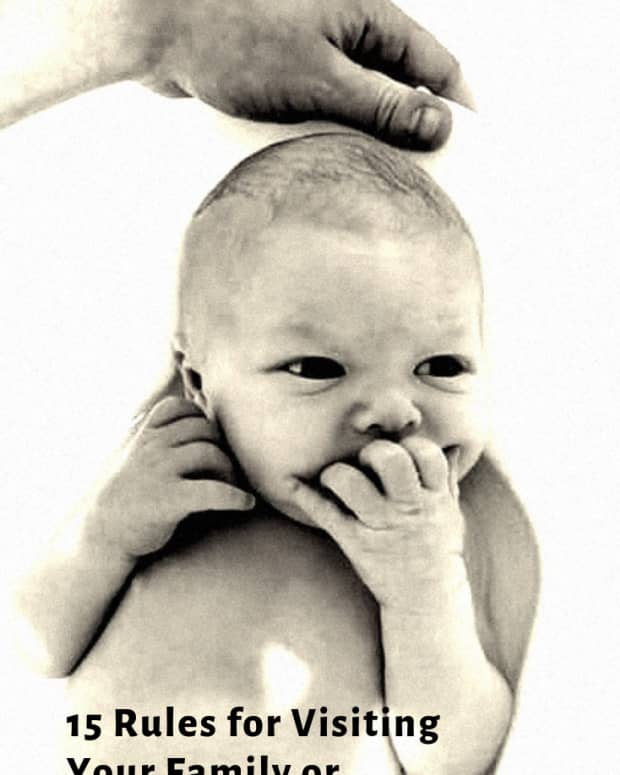 Clin Transl immunology. 2013;2(4). - Hassiot F. et al., "Infectious diseases of the mother and child stimulate a rapid leukocyte reaction in breast milk." Clean Transl Immunology. 2013;2(4).
Clin Transl immunology. 2013;2(4). - Hassiot F. et al., "Infectious diseases of the mother and child stimulate a rapid leukocyte reaction in breast milk." Clean Transl Immunology. 2013;2(4).
10 Brown A, Harries V. Infant sleep and night feeding patterns during later infancy: Association with breastfeeding frequency, daytime complementary food intake, and infant weight. Breast Med . 2015;10(5):246-252. - Brown A., Harris W., "Night feedings and infant sleep in the first year of life and their association with feeding frequency, daytime supplementation, and infant weight." Brest Med (Breastfeeding Medicine). 2015;10(5):246-252.
11 Infant sleep information source. [Internet]. Normal Infant Sleep Development; December 2017 [cited 2018 Feb] - All about baby sleep. [Internet] "The development of normal sleep in a child", December 2017 [cited February 2018].
12 Baby sleep science. [Internet]. The-Four-Month-Sleep-Regression-What-is-it-and-What-can-be-Done-About-it. March 2014 [ cited 2018 Feb ] - The science of baby sleep. [Internet], "Four-month sleep regression: what it is and what to do about it." March 2014 [cited February 2018].
13 The Myth Of Baby Sleep Regressions – What’s Really Happening To Your Baby’s Sleep? [Internet]. Pinky Mckay ; December 2017 [ cited 2018 Feb ] - "The Myth of Baby Sleep Regression - What's Really Happening to Your Baby?" [Internet]. Pinky McKay, December 2017 [cited February 2018].
14 Kendall - Tackett K AL0104 . The effect of feeding method on sleep duration, maternal well-being, and postpartum depression.